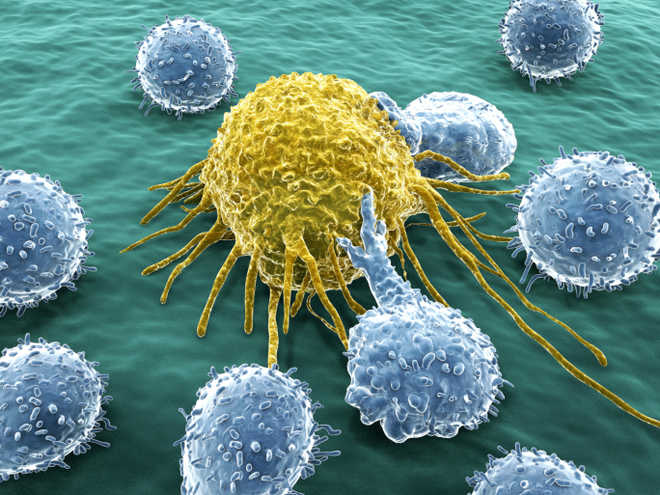
Toronto
Scientists have discovered the trigger behind the most severe forms of cancer pain that can potentially lead to better pain management in cancer patients.
The study identified the culprit — a gene that is also responsible for some of the most aggressive forms of androgen-fuelled cancers.
Visible on the surface of the cancer cells, the gene TMPRSS2 comes in contact with the body's nerve pain receptors, which then trigger the pain, the study found.
“Prostate cancer research already knows that if you have the TMPRSS2 gene marker, the prostate cancer is much more aggressive. They have also shown that this is androgen (male hormone) sensitive,” said lead researcher David Lam from the University of Toronto.
In this study, Lam found that this gene was not only present in patients suffering from head and neck cancers, it was also prevalent in much greater quantities in prostate cancer.
The more TMPRSS2 that comes into contact with nerve pain receptors, the greater the pain, found the researchers.
Lam and colleagues followed up this observation by looking at different types of cancers with known pain associations.
According to clinical data, head and neck cancer are the most painful form of cancers, followed by prostate cancer, while melanoma, or skin cancer, is at the bottom of the pain scale.
But what surprised the researchers was that the presence and numbers of TMPRSS2 in these cancer cell cultures stood in exact correlation with the known level of pain each cancer causes.
The discovery of TMPRSS2's role in triggering cancer pain may lead to the creation of targeted cancer pain therapies that effectively shut down the expression of this gene or its ability to infiltrate pain receptors in the body.
The study was published in the journal Pain. — IANS



























